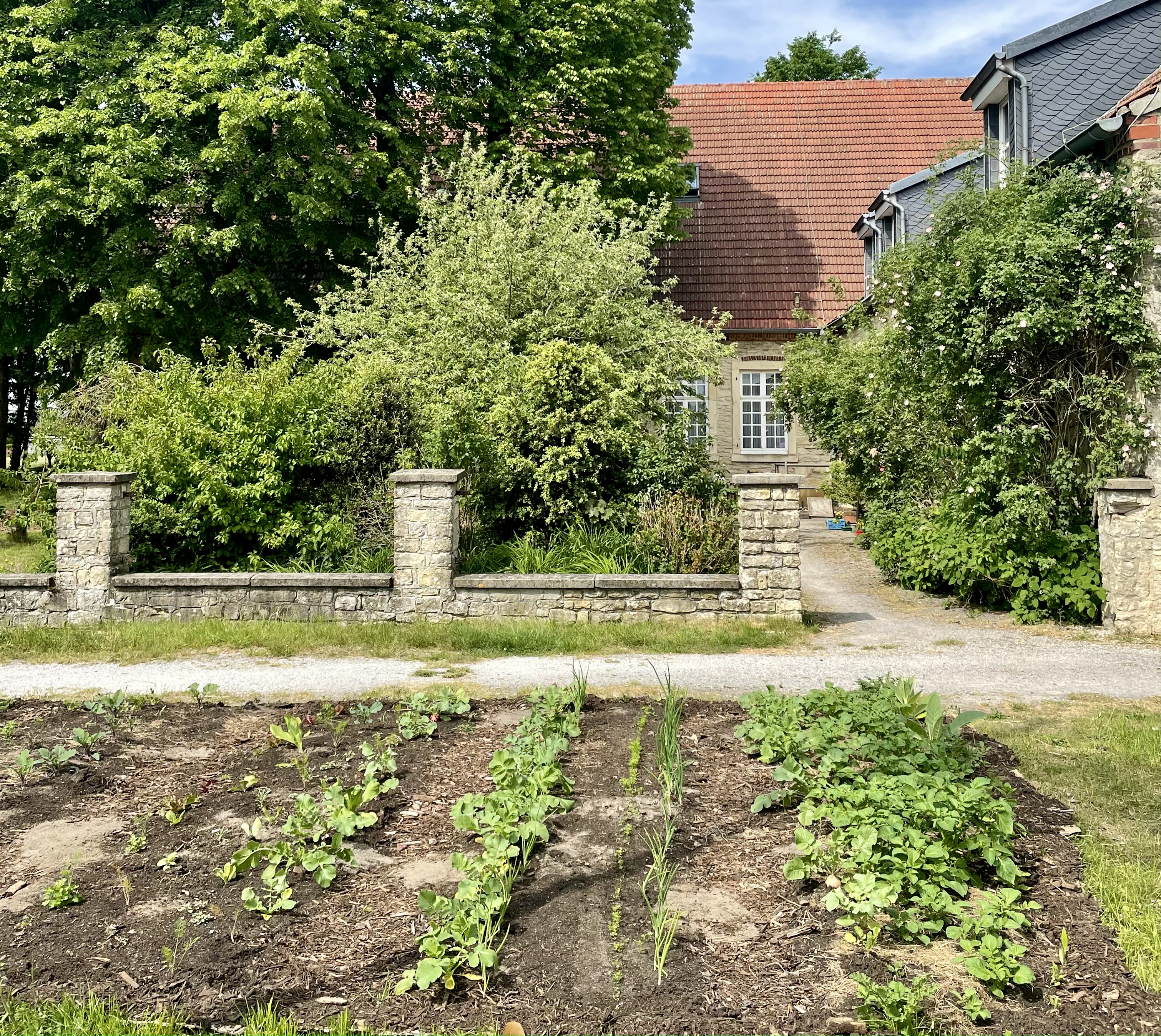July 11–18, 2022
Schöppingen D-48624
Germany
A summer seminar curated by Aneta Rostkowska, Nada Rosa Schroer and Julia Haarmann.
In recent years there has been a proliferation of art exhibitions on plants and ecology accompanied by a fascination with indigenous thinking and various forms of collective work in art institutions. At the same time, there has been a growing disillusionment with the art world itself: For example, in its lack of solidarity, exploitative working conditions, short-term funding paired with shrinking structural support, a superficial understanding of diversity, strong hierarchical structures at art institutions, compulsive self-branding or the cult of mobility and flexibility. The art system perfectly mimics the neoliberal economy that we all live in. Our disappointment, however, often does not translate into concrete actions—“neoliberal art realism” (a term inspired by Mark Fisher’s “capitalist realism”) permeates everything as the sense that the status quo of the art world is the only viable one and it is impossible to imagine an alternative to it.
On the other hand, the intensifying climate change makes it clear that the economy and society cannot continue in the same way as they used to. The ecological catastrophe that we are now facing triggers a strong impulse and need for change. In response, this seminar will use ecological thinking to reflect differently about the workings of the art world, and especially in different types of art institutions. We will bring in the teachings of plants and permaculture that has mostly functioned as exhibition content into the structures of our work, in order to inform our curatorial practices. How can the ethics of permaculture (earthcare, peoplecare and fairshare) inspire a lasting transformation of art institutions beyond the superficial application of ecological guidelines? Can the regenerative aspect of permacultural thinking be transformed into a regenerative philosophy of an art institution? Could this thinking translate to sustainable community-based practices focused on emancipatory forms of working together and collective care for ecological and social commons?
The seminar involves discussions in a closed group of practitioners, artists and curators, as well as public events accessible online throughout the week as well as in the form of a public day (Saturday, July 16) on site.
Participants: Art Residency Research Collective (Pau Catà/ Morag Iles/ Miriam La Rosa/ Patricia Healy McMeans/ Angela Serino), Giulia Bellinetti, Felipe Castelblanco, Viviana Checchia, Culture for Climate (Ewa Chomicka/ Anna Czaban), Madeleine Collie, Clelia Coussonnet, Alfred Decker, T. J. Demos, Marianna Dobkowska, Maja Fowkes & Reuben Fowkes, Yoeri Guépin, Judit Hoffkamp, Michael Marder, Riya Matthew, Lola Malavasi Lachner, Anna Melnykova, Paloma Nana, Sunná Nousuniemi, Åsa Sonjasdotter, Sour Grass (Annalee Davis/ Holly Bynoe), Ela Spalding, Stéphane Verlet Bottéro. Community cooking by Paula Erstmann.
Public keynote lectures (online):
Register in advance for the meetings by following the registration link; after registering, you will receive a confirmation email containing information about joining the meeting.
Michael Marder
Toward Material Sustainabilities: Perspectival Meditations
July 13, 2–3:30pm CET
Sour Grass (Annalee Davis & Holly Bynoe)
The Grounds We Nurture
July 14, 10–11:30am CET
T. J. Demos
Climate Aesthetics as Class War
July 16, 5–6:30pm CET
Maja Fowkes & Reuben Fowkes
The Self-Management of Plants
June 17, 9:30–11am CET
Public Programs (on site):
To register please send an email to info@stiftung-kuenstlerdorf.de.
Yoeri Guépín
Workshop: Cooking for microbes. Changing the microbiome of extractive capitalism
July 16, 10am–1pm CET
T.J. Demos
Seminar and Lecture on Climate Aesthetics as Class War
July 16, 3–6:30pm CET
Community Brunch
July 17, 12–4pm CET
The seminar is developed in collaboration with the CCA Temporary Gallery / Cologne (temporarygallery.org). It is part of the CAP (Curating for Advanced Practices) program of the Stiftung Künstlerdorf Schöppingen. CAP aims to develop new strategies and structures in the arts and for artistic practices and negotiate their implementation and production conditions.
With kind support by the Kunststiftung NRW, the Friends of the Künstlerdorf Schöppingen Association and the International Visitor Program of the NRW Kultursekretariat Wuppertal.



